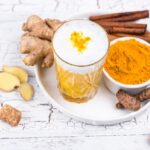Depression is a multifaceted mental health condition influenced by numerous factors, including diet. While a balanced, nutrient-rich diet can enhance mental well-being, certain foods have been linked to an increased risk of depression due to their impact on brain chemistry, inflammation, and blood sugar levels. Here are 20 foods South Africans should avoid or minimize to maintain a healthy mental state:
1. Processed Meats
Processed meats like sausages, polony, and bacon are loaded with preservatives, sodium, and unhealthy fats. These additives can increase inflammation in the body, which is linked to mental health issues, including depression.
2. Refined Sugar
South Africans often indulge in sweets, fizzy drinks, and sugary treats like koeksisters and chocolate bars. Excessive sugar consumption can lead to blood sugar spikes and crashes, which can worsen mood swings and contribute to feelings of sadness and fatigue.
3. Deep-Fried Foods
Popular fried items like vetkoeks, fries, and fried chicken are high in trans fats and unhealthy oils. These fats can negatively affect brain function and have been associated with increased risk of depression.
4. White Bread and Refined Grains
Staples like white bread, pasta, and rice undergo processing that strips away their nutritional value. Refined grains can cause a quick rise in blood sugar, followed by a sharp drop, leading to irritability, fatigue, and depressive symptoms.
5. Caffeine
While coffee and tea are integral to many South Africans’ routines, excessive caffeine consumption, especially from energy drinks or high-caffeine coffee, can disrupt sleep patterns and increase anxiety, both of which can contribute to depression.
6. Artificial Sweeteners
Common in low-calorie products, sodas, and certain processed foods, artificial sweeteners like aspartame may interfere with the production of serotonin, a neurotransmitter that regulates mood. This can heighten the risk of depression.
7. Alcohol
While enjoyed socially, alcohol is a depressant. Excessive consumption can disrupt the balance of neurotransmitters in the brain and lead to increased risk of depression, particularly in individuals predisposed to mental health issues.
8. Packaged Snacks
Chips, instant noodles, and other ready-to-eat snacks are often high in unhealthy fats, sodium, and preservatives. Regular consumption of these foods can lead to inflammation and nutrient deficiencies, both of which are linked to depressive symptoms.
9. Soda and Sugary Drinks
Sodas and fruit-flavored beverages are high in sugar and devoid of nutritional value. These drinks cause rapid spikes in blood sugar, followed by sharp crashes, which can exacerbate mood disorders and anxiety.
10. Margarine
Margarine, used in many baked goods and as a spread, is high in trans fats, which are harmful to brain health. Diets high in trans fats have been linked to a higher risk of depression.
11. Processed Cheese
Widely available in South African markets, processed cheese products like cheese slices and spreadable cheese contain additives and unhealthy fats that can contribute to inflammation and poor mental health.
12. High-Sodium Foods
Cured meats, instant soups, and many pre-packaged foods are high in sodium. Excessive salt can increase blood pressure, which is linked to anxiety and depression in some individuals.
13. Packaged Baked Goods
Pastries, muffins, and cookies contain high amounts of refined sugar and trans fats. Regular consumption of these treats can lead to inflammation, insulin resistance, and increased risk of depression.
14. Fast Food
Burger joints and fried chicken spots are popular in South Africa, but these fast food meals are typically high in unhealthy fats, sugars, and sodium, all of which can negatively impact mental well-being over time.
15. Energy Drinks
Energy drinks, filled with high levels of caffeine, sugar, and artificial additives, can cause energy crashes, anxiety, and poor sleep, which all contribute to feelings of depression.
16. Commercial Salad Dressings
Many store-bought salad dressings contain high amounts of sugar, sodium, and unhealthy fats, turning an otherwise healthy meal into one that can negatively affect mental health.
17. Frozen Meals
Convenience foods like frozen pizza and ready-to-eat meals are often packed with preservatives, sodium, and refined carbohydrates. Regular consumption can lead to weight gain and increase the risk of depression.
18. Low-Fat Yogurt with Added Sugars
While yogurt can be a healthy choice, many low-fat versions contain added sugars and artificial sweeteners, which can contribute to blood sugar imbalances and poor mood regulation.
19. Canned Vegetables with Added Salt
Canned vegetables are a quick option, but many are preserved in salty brine solutions. High sodium intake can exacerbate depressive symptoms, especially when consumed in large quantities.
20. High-Fat Dairy
While some fats are beneficial, full-cream milk, heavy cream, and cheese contain saturated fats that can lead to inflammation, a known contributor to depression. Opting for low-fat or plant-based alternatives can be better for mental well-being.
A healthy diet is essential for both physical and mental well-being. South Africans can benefit from avoiding or limiting the consumption of these 20 foods, as they have been linked to increased risk of depression due to their impact on brain health, blood sugar levels, and inflammation. Instead, opt for whole, nutrient-dense foods that support a balanced mood and overall mental health.








